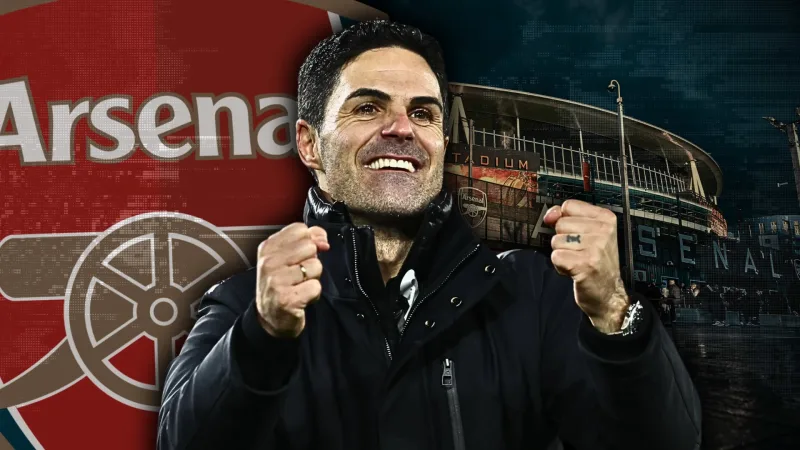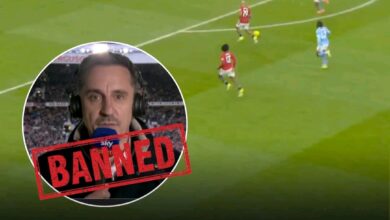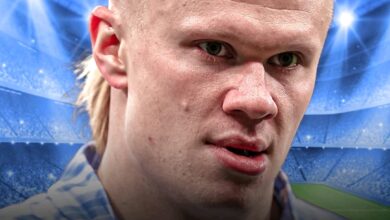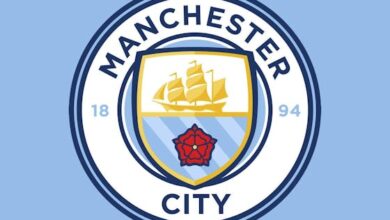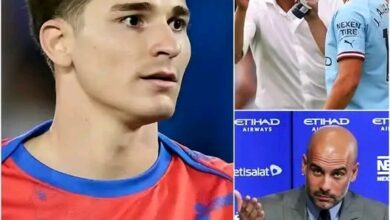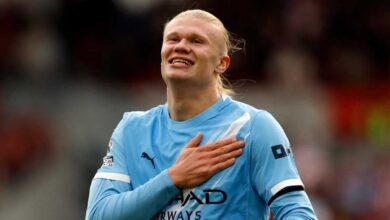Arsenal taught brutal Raphinha transfer lesson by Barcelona after rare Edu admission on dream move

Barcelona continues to benefit from beating Arsenal to the signing of Raphinha two and a half years after the Gunners failed move for the then-Leeds United player. In the 2022 summer transfer window Arsenal reputedly saw Leeds turn down an offer for the winger. Chelsea also moved to sign Raphinha but the Catalan club ultimately won out after agreeing to a reported £55million deal. The Gunners instead signed Gabriel Jesus from Manchester City for £45million before paying Brighton an initial £21million for Leandro Trossard the following winter.
However they would have to pay at least the combined outlay spent on those two players if they wanted to sign Raphinha this month with the player in fine form. He has scored 20 goals across all competitions for Barcelona this season and assisted another 11 for his teammates. Those performances have led the player’s market value on Transfermarkt to reach a record high for Raphinha days before the winter transfer window opened. They now value him at £67.66million (€80million) a 33% increase compared to their previous update during the October international break. Since the season started Raphinha’s value has increased by 60%.
The player’s rapid rise this season to become one of the top wingers in the world again makes Arsenal’s failure to sign him two and a half years ago even more galling. The club’s former sporting director Edu Gaspar had a good relationship with the player’s agent the former Barcelona and Chelsea midfielder Deco but has previously explained how that was not enough to do a deal. Edu recalled to Sky Sports in a rare interview later that same summer that he just asked Deco can you explain the situation to me for Raphinha and he was clear he said Edu we have a good relationship I’m not going to lie to you his idea is to go to Barcelona because his dream is to go there and we have been talking to Barcelona for a long time.
Arsenal supporters now look back on this missed transfer opportunity with significant regret as Raphinha continues to excel at Barcelona establishing himself as one of the world’s premier attacking talents. The January 2025 transfer window has brought renewed discussions about Arsenal’s attacking options with many fans wondering what could have been had the club successfully secured Raphinha’s signature. While Gabriel Jesus and Leandro Trossard have made valuable contributions to Arsenal the Brazilian winger’s ceiling appears to be considerably higher based on his performances in La Liga.
Raphinha’s journey from Leeds United to becoming a Barcelona star represents a classic case of a player fulfilling their potential at their dream club. His desire to join Barcelona was evidently strong enough to reject advances from Premier League giants including Arsenal and Chelsea. The player’s personal connection to Barcelona likely played a significant role in his decision making process with many South American players growing up idolizing the Catalan club. Barcelona’s persistence in pursuing Raphinha despite their well-documented financial difficulties at the time demonstrates how highly they rated the Brazilian international. Their patience and determination have been rewarded with the winger becoming one of their most important players in the post-Messi era.
Under Barcelona’s current manager Raphinha has been granted the creative freedom to express himself on the right wing cutting inside onto his favored left foot to devastating effect. His ability to both score and create has made him one of La Liga’s most feared attackers and his value to Barcelona extends beyond mere statistics. His work rate defensive contributions and technical skills have made him a complete modern winger. Arsenal’s recruitment strategy has generally been praised in recent years with sporting director Edu and manager Mikel Arteta building a cohesive squad capable of challenging for the Premier League title. However the failure to land Raphinha represents a rare misstep in what has otherwise been an impressive rebuild at the Emirates Stadium.
The Gunners have strengthened significantly in other areas but some analysts suggest they still lack the kind of game-changing wide player that Raphinha has become. The combined signing of Jesus and Trossard has provided Arsenal with quality and depth but neither player offers quite the same ceiling as Raphinha who at 28 years old is now entering what should be the prime years of his career. Chelsea also missed out on Raphinha despite making a concerted effort to bring him to Stamford Bridge. The Blues have subsequently invested heavily in attacking talent but may similarly look at Raphinha’s development at Barcelona with a sense of what might have been.
Leeds United benefited financially from Raphinha’s sale receiving a significant fee that helped them reinvest in their squad following his departure. However they were unable to avoid relegation from the Premier League the season after selling their star player highlighting just how important he had been to their team. Barcelona’s transfer strategy often involves targeting players who have a strong desire to join the club enabling them to sometimes secure signings despite competition from financially stronger Premier League teams. This emotional connection to Barcelona gives them an advantage in certain negotiations as was clearly the case with Raphinha.
The trajectory of Raphinha’s career since joining Barcelona validates his decision to hold out for his dream move rather than accepting offers from Arsenal or Chelsea. His market value has risen dramatically and he has established himself as one of the most effective wide players in world football. Edu’s candid admission about the transfer situation reveals the challenges Premier League clubs face when competing with the historical allure of clubs like Barcelona even during periods when they have financial constraints. Despite being able to offer competitive financial packages Arsenal could not overcome Raphinha’s emotional attachment to Barcelona. For Arsenal fans it remains a case of what might have been with many wondering how Raphinha would have performed in Mikel Arteta’s system alongside players like Bukayo Saka Martin Odegaard and Gabriel Martinelli.
Such an attacking quartet would potentially have been among the most formidable in European football. The current January transfer window presents Arsenal with an opportunity to address any remaining gaps in their squad though finding a player of Raphinha’s quality mid-season presents significant challenges. Given his current valuation and importance to Barcelona it seems highly unlikely that the Catalan club would entertain any offers for their star winger. Arsenal’s attacking options have been scrutinized this season with some suggesting they lack the clinical edge required to win the Premier League title.
While players like Saka and Martinelli have shown flashes of brilliance the addition of a proven performer like Raphinha could have provided the consistency needed at the highest level. The comparison between Arsenal’s current wide options and Raphinha becomes particularly relevant when analyzing big games where elite talent often makes the difference. Barcelona have benefited from Raphinha’s ability to produce moments of magic in crucial matches something Arsenal have sometimes lacked in their biggest fixtures. The financial aspect of football transfers often dominates discussions but Raphinha’s case illustrates how player preference and emotional connections can override purely economic considerations.
Despite Premier League clubs being able to offer competitive salaries the allure of playing for certain historic clubs remains a powerful factor in transfer negotiations. Arsenal’s inability to convince Raphinha to join them despite having his agent’s ear demonstrates the limits of networking and relationships in football when competing against a player’s childhood dream.
Football’s transfer market continues to see inflation with players like Raphinha now commanding fees that would have seemed extraordinary just a few years ago. His current valuation of nearly £68 million represents a significant increase on the £55 million Barcelona paid in 2022 reflecting both his individual development and the general trend of rising transfer fees. The Gunners’ recruitment team led by Edu has generally made astute decisions in the transfer market but the Raphinha situation serves as a reminder that even the best-planned strategies can be undone by factors outside a club’s control.
Arsenal fans watching Raphinha excel for Barcelona might wonder whether the club could have done more to secure his signature perhaps by moving earlier or offering a more substantial financial package to Leeds United. However Edu’s revelations suggest that the player’s preference was always going to be the deciding factor. The contrasting fortunes of Arsenal’s alternative signings provide an interesting subplot to the Raphinha story. Gabriel Jesus has suffered from injury problems during his time at the Emirates while Leandro Trossard has been a useful squad player without quite reaching the elite level Raphinha has demonstrated at Barcelona. This January transfer window could see Arsenal attempt to find another wide option to strengthen their squad for the second half of the season.
However the caliber of player available mid-season rarely matches what can be secured during summer windows making the missed opportunity with Raphinha even more significant in retrospect. Barcelona’s faith in Raphinha has been fully justified with the Brazilian becoming an integral part of their rebuilding project post-Lionel Messi. His ability to handle the pressure of replacing established stars at the Camp Nou speaks to his mental fortitude and technical quality. For Arsenal the Raphinha episode may have influenced subsequent transfer strategies with the club perhaps more willing to move decisively when identifying primary targets. The experience of missing out on such a talent can provide valuable lessons for future recruitment cycles. Premier League clubs continue to hold significant financial advantages over most European counterparts but the Raphinha case demonstrates that money alone doesn’t always determine transfer outcomes.
Barcelona’s historical appeal and Raphinha’s personal connection to the club proved more powerful than the financial might of English football. Arsenal’s attacking unit has still developed into one of the Premier League’s most dangerous but the addition of Raphinha could have elevated it to even greater heights. His combination of dribbling crossing finishing and creative passing would have complemented Arsenal’s existing forwards perfectly. The value of securing first-choice targets rather than alternatives becomes apparent when observing Raphinha’s development at Barcelona compared to how Arsenal’s eventual signings have performed. While Jesus and Trossard have contributed positively their impact hasn’t matched what Raphinha has achieved in Spain.
Football clubs must balance pragmatism with ambition in the transfer market knowing when to move on to alternative targets and when to persist with pursuing primary options. Arsenal’s decision to pivot away from Raphinha once his Barcelona preference became clear was likely the correct one but the outcome still represents a missed opportunity. For Barcelona securing Raphinha despite their financial difficulties at the time represents a significant coup and demonstrates their enduring appeal to South American players in particular. The successful integration of Raphinha into their team has accelerated their rebuilding process following several challenging seasons.
As Arsenal continue their pursuit of major trophies under Mikel Arteta the Raphinha situation serves as both a frustration and a learning experience. Elite clubs must accept that they cannot win every transfer battle but must ensure they win enough of them to build squads capable of competing at the highest level. Raphinha’s market value increase since joining Barcelona reflects both his individual improvement and the platform the club has provided him to showcase his talents on the Champions League stage. His performances in Europe’s elite competition have further enhanced his reputation and justified his decision to hold out for his dream move. For the player himself the decision to join Barcelona has been thoroughly vindicated with his stock rising considerably since leaving Leeds United.
His development into one of the world’s best wingers suggests he made the right career choice despite Arsenal’s interest. The January transfer market often sees clubs paying premium prices for players as teams desperate for reinforcements look to strengthen mid-season. This makes Arsenal’s failure to secure Raphinha in a summer window when he was available even more significant in retrospect.
As Barcelona continues to benefit from Raphinha’s performances Arsenal supporters can only wonder what might have been had the Brazilian chosen London over Catalonia. His combination of creativity goal threat and work rate would have addressed several areas Arsenal have sometimes found lacking in their biggest matches. The transfer saga also highlights the importance of understanding player motivations and aspirations in recruitment strategies.
Technical and financial assessments alone cannot account for the emotional factors that often influence players’ decisions especially when historic clubs like Barcelona enter negotiations. Arsenal’s continued development under Arteta suggests they have moved beyond the disappointment of missing out on Raphinha but his performances for Barcelona serve as a reminder of the fine margins that often determine sporting success.
Securing elite talent in key positions can be the difference between challenging for trophies and winning them. For Barcelona the signing of Raphinha represents one of their most successful transfer decisions in recent years with the Brazilian proving worth every penny of his £55 million fee. His value to the team extends beyond statistics influencing their style of play and providing leadership during a transitional period. Arsenal fans watching Raphinha excel for Barcelona might feel a sense of what might have been but the club’s overall recruitment strategy has still delivered a squad capable of competing at the highest level.
The Raphinha episode represents just one chapter in a broader story of Arsenal’s rebuild under Arteta and Edu. Football’s transfer market continues to demonstrate that timing influence relationships and emotional factors play crucial roles alongside financial considerations. Raphinha’s journey from Leeds to Barcelona via Arsenal’s interest encapsulates many of these dynamics providing a fascinating case study in modern football recruitment.
